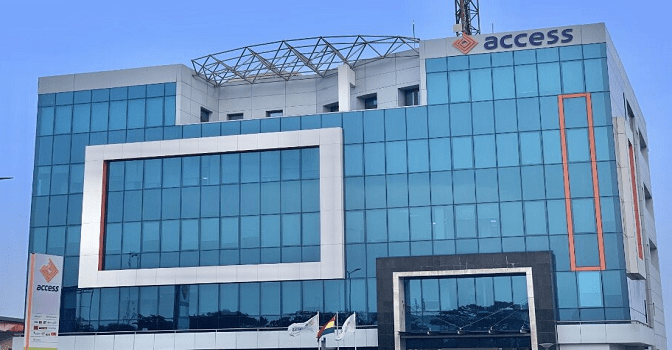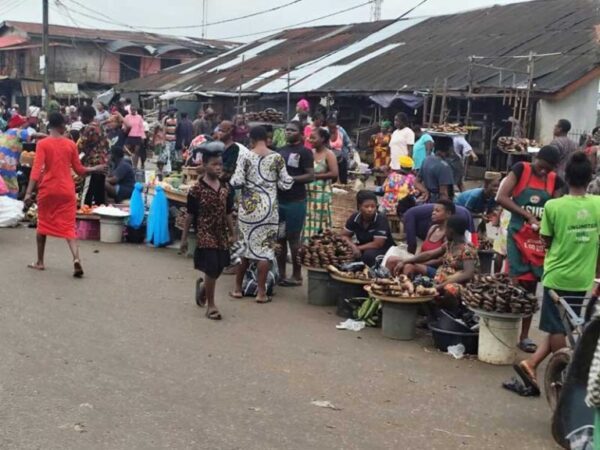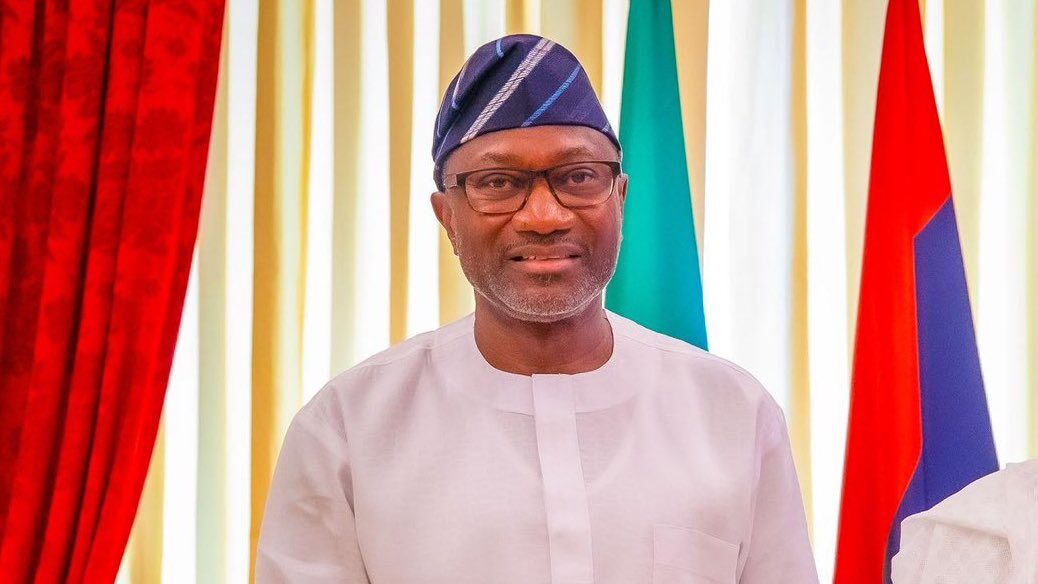
Christian persecution is a myth sustained by emotion, ignorance, and vested interests, argues UDU YAKUBU
The claim that Christians are systematically persecuted in Nigeria has become a recurring headline in both domestic and international media. Yet this narrative, upon closer examination, is misleading and politically expedient. It distorts Nigeria’s complex security and governance crises into a simplistic religious binary that obscures the deeper realities of state failure, elite manipulation, and moral decay. What Nigeria faces today is not religious persecution but the consequences of a broken state, where both Christians and Muslims are victims of violence, neglect, and systemic corruption. The “Christian persecution” narrative serves as a convenient but false refuge for those unwilling to confront the nation’s real problems.
Nigeria is one of the world’s most religiously diverse nations, nearly evenly divided between Christians and Muslims, with millions of adherents of indigenous faiths. Across the nation, churches and mosques stand side by side, from the ancient cities of Kano and Sokoto to the riverine towns of Bayelsa and Cross River. Christian schools; hospitals, and businesses thrive in the North, just as Muslim communities live and worship freely in the South.
This lived reality contradicts the notion of a nation at war with itself on religious grounds. While isolated incidents of inter-communal violence persist, the idea of a systematic campaign to eradicate Christianity in Nigeria collapses under scrutiny.
To understand the persistence of this false narrative, one must look beyond faith to the broader crisis of governance. Nigeria’s most violent episodes over the last two decades – Boko Haram’s insurgency, the farmers-herders clashes, and widespread banditry – are rooted not in theology but in state failure, poverty, environmental stress, and the weaponization of ethnicity and religion by political elites.
Boko Haram, for instance, began as an extremist movement rejecting, not Western education and civilization as is commonly and erroneously believed, but the colossal, inter-generational failure of state authority as embodied by the supposedly western-educated Nigerian elite, Muslims and Christians alike. Its attacks have claimed the lives of tens of thousands of Nigerians, most of them Muslims. The farmers–herders conflict, often simplistically framed as “Muslim Fulani herders versus Christian farmers,” is fundamentally a resource war fuelled by desertification, demographic pressure, and the collapse of traditional conflict resolution systems. Banditry in the North-West is driven by criminal opportunism and economic desperation, not by ideology.
Reducing these multi-dimensional crises to “Christian persecution” is a dangerous oversimplification that hinders meaningful policy responses.
Religious victimhood in Nigeria has become a powerful political and financial instrument. Certain domestic religious organizations, advocacy groups, and their foreign allies have discovered that the persecution narrative opens doors – to funding, international sympathy, and political leverage. It allows religious leaders to rally followers under the banner of existential threat while distracting attention from governance failures within their own communities.
Internationally, the narrative finds fertile ground among Western evangelical circles and advocacy networks, which often see Africa through a neo-missionary lens – as a continent of suffering Christians needing rescue from hostile Muslim majorities. Such groups influence Western policy debates and shape global perceptions, often without nuance or on-the-ground evidence.
This alliance of interests creates a self-reinforcing echo chamber: Western groups demand action; Nigerian actors supply emotional testimonies; and the resulting media cycle reinforces a myth that serves both sides, while deepening mistrust within Nigeria itself.
One of the most potent forces sustaining the myth of Christian persecution in Nigeria is the global asylum economy – a system in which stories of religious suffering are monetized, institutionalized, and rewarded by Western immigration frameworks. Over the past decade, tens of thousands of Nigerians have sought asylum or refugee status in Europe and North America, invoking claims of “religious persecution” as the central justification for their flight.
While a minority of these applicants may have faced genuine threats in conflict zones, the overwhelming majority are economic migrants – ordinary Nigerians seeking escape from poverty, unemployment, or social stagnation. Yet, because Western asylum systems are predisposed to accept narratives of persecution over economic hardship, applicants have learned to recode their struggle for survival as a struggle for religious freedom.
Thus, the story of “Christian persecution in Nigeria” has become not merely a domestic propaganda tool but an export commodity – a moral currency traded in embassies, immigration interviews, and humanitarian bureaucracies. Each successful claim reinforces the myth abroad, giving new credibility to the very narrative that made the claim possible in the first place.
This cycle operates on mutual incentives: for desperate migrants, the persecution story provides a strategic entry ticket to societies that might otherwise reject them; for Western immigration systems, it affirms a self-serving moral identity as protectors of religious freedom and saviours of endangered Christians; for religious and advocacy groups, it validates their fundraising appeals and ideological positions about Islam’s “threat” to Christianity.
The consequences, however, are deeply corrosive.
First, this distortion undermines Nigeria’s image internationally, portraying it as a failed and intolerant state unable to guarantee basic religious rights – when, in truth, millions of Christians and Muslims coexist peacefully across its territories. Second, it trivializes the suffering of genuine victims of violence, who are often caught in the crossfire of terrorism or communal conflict unrelated to faith.
Third, it feeds xenophobic and security anxieties abroad, as Western media and policy circles internalize the false image of Nigeria as a breeding ground for religious extremism.
Perhaps most dangerously, this asylum-driven narrative becomes a feedback loop. Each accepted case of “persecuted Christians” in the diaspora emboldens new applicants, encourages local churches and NGOs to supply “documentation” or “testimonies,” and amplifies international advocacy campaigns that pressure Western governments to “act.” The line between compassion and exploitation disappears; humanitarianism becomes a business, and truth becomes negotiable.
In the process, both faith and nationhood are debased. The Nigerian who claims persecution abroad implicitly indicts his homeland as barbaric and irredeemable, while foreign actors who amplify such claims reinforce a neo-colonial paternalism that denies Nigeria’s agency and complexity.
Ultimately, the asylum economy has turned religious victimhood into a passport, and Nigeria’s diversity into a liability. What might have been a national conversation on governance and reform has instead been outsourced into a global theatre of pity – staged for the moral consumption of Western audiences.
Tragic incidents such as the Owo church massacre, the attacks on communities in Benue State, and the abduction of the Chibok schoolgirls (Christians and Muslims) in Borno, among others, are searing reminders of Nigeria’s insecurity and problem. The assaults on churches and other symbolic targets of faith are real and devastating, but they do not represent a coordinated, state-backed campaign of Christian persecution. Rather, they expose the broader decay of governance, justice, and social cohesion that leaves all Nigerians – Christians, Muslims, and others – vulnerable to violence. The Benue attacks, like many others, are rooted in land conflicts, criminal opportunism, and state failure, not a systematic war on Christianity.
The killing of Deborah Samuel in Sokoto, or the RCCG evangelist murdered in Abuja, were not products of “Christian persecution” – they were products of religious extremism and mob intolerance, which also target Muslims who resist such fanaticism. Many Muslim clerics condemned those killings at great personal risk. Indeed, Muslim reformers, writers, and traditional leaders have also been murdered for opposing extremism – remember Sheikh Ja’afar Mahmud Adam, who was assassinated by extremists in his mosque in Kano in 2007 for preaching moderation. These acts reflect a crisis of values and law enforcement, not a structured campaign against one faith.
To acknowledge victims’ pain is not to endorse a false narrative; it is to call for honest diagnosis and collective renewal. True justice demands confronting the deeper causes – weak institutions, impunity, inequality, and failed leadership – while rebuilding national solidarity across faith lines.
The evidence of peaceful coexistence in Nigeria is overwhelming. In all the states of Northern Nigeria, Christian communities conduct worship openly in churches, run schools, and operate businesses without state-sanctioned discrimination. Similarly, in southern states, especially the South-east and South-south which are predominantly Christian, mosques, Islamic schools, and Muslim communities operate freely.
Even in conflict-prone areas, violence has not followed strictly religious lines. Numerous studies by Nigerian and foreign organisations – including the International Crisis Group (ICG), SBM Intelligence, and Pew Research Center – have shown that the vast majority of Nigerians, both Christian and Muslim, value interreligious coexistence and reject sectarian conflict. This enduring social fabric stands in contrast to the politicized imagery of persecution circulated abroad.
It is essential to distinguish between the reality of violence and the myth of persecution. Nigeria’s insecurity is real and devastating. Churches, mosques, markets, and schools have all been attacked. But the perpetrators – terrorists, bandits, kidnappers – do not discriminate by faith; they target opportunity. In most reported incidents, Muslims and Christians suffer side by side.
Labeling all violence against Christians as persecution obscures the real drivers of insecurity: economic inequality, weak law enforcement, corruption, and impunity. It also erases the suffering of Muslim victims, undermining solidarity in a nation that needs unity to survive.
The persistence of the persecution narrative also reflects a moral and intellectual failure among sections of Nigeria’s political and religious leadership. It is easier to frame complex social breakdowns as religious war than to admit complicity in governance collapse. The moral crisis is evident when pastors, bishops, imams, and politicians alike weaponize fear for influence rather than pursue truth and reconciliation.
This intellectual and ethical laziness has grave consequences. It deepens polarization, feeds extremism, and distracts from the urgent task of nation-building.
For Nigeria to move forward, it must reclaim the narrative from extremists, propagandists, and opportunists. The real enemies of Nigeria are corruption, inequality, and poor governance – not Muslims or Christians. Policymakers, researchers, and religious leaders must reframe the conversation from persecution to partnership, from grievance to governance.
Foreign observers and advocacy organizations also have a responsibility to engage with nuance and evidence, rather than perpetuate alarmist stereotypes that fuel division and international misunderstanding.
The claim of Christian persecution in Nigeria is a myth sustained by emotion, ignorance, and vested interests. It distracts from the structural failures that endanger every Nigerian, regardless of faith. True patriotism and true faith demand honesty: Nigeria’s crisis is not religious; it is moral, institutional, and developmental.
To insist otherwise is to betray both conscience and intellect. The path to national renewal lies not in cultivating victimhood but in confronting the shared failures that bind all Nigerians in suffering – and could, if faced together, bind them in redemption.
Dr Yakubu is Chief Biographer & CEO at May Publishing, Lagos. Email: udu.yakubu@gmail.com





